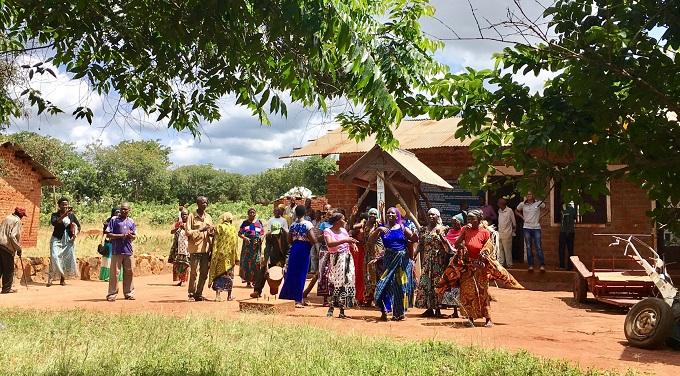
Itumbiko village in Kakonko District, Kigoma.
© Bertram Lwabulala/ITC
Contact details
Submitted by: Lida Azatyan, Associate Programme Officer, International Trade Centre
Email: [email protected]
Social: #KJP
Introduction to the project
Country
Kigoma, Tanzania, with the main focus, although not exclusively, on the three refugee-hosting districts of Kasulu (Urban and Rural), Kibondo, Kakonko.
Duration
2017 - 2021
Description
With an urgent need to address tensions between refugees and their hosts, ITC was part of a UN joint programme for Kigoma’s refugee-hosting districts Kasulu, Kibondo and Kakonko. With the Tanzanian government’s priority to turn Kigoma into a trade and business hub at a crossroad with the neighbouring countries, agri-businesses was identified as an existing sector with untapped potential and unmet demands.
Based on this assessment, the International Trade Centre (ITC) is supporting women and youth from the Kasulu, Kibondo and Kakonko districts in building sustainable livelihoods in the agricultural sector. To do so, the project is designed to advance agricultural and post-harvest management practices for beans, cassava and maize within the farming communities in the targeted areas.
Project aims
Regarding the refugee component, the project aimed to:
- Build economic opportunities for youth and women in the host communities of refugee-hosting districts.
- Connect members from the host and refugee communities through trade for peaceful co-existence.
- Facilitate trade agreements in refugee host countries to build opportunities for jobs and livelihoods of returnees.
Resources used
The funds for the project are provided by the Norwegian and Swedish Governments.
Main activities of the Good Practice
A unique component of the project is the focus on connecting farmers to expanded markets locally and across borders, for example by having supported the establishment of the Sofya common market. This market is expected to attract around 15,000 customers from across the Burundian and Congolese borders as well as Kigoma areas, representing members from host, refugee, and returnee communities.
The project also works closely with local authorities and private actors in the host community in numerous ways. Among the activities in these collaborations was the Tanganyika Business Summit in Kigoma, which ITC organized together with Tanzanian business and sector associations, Kigoma authorities, and regional organizations. Here, farmers could make connections to trade with visitors and potential buyers from Burundi and DR Congo.
By establishing business connections and uniting people between Tanzania, Burundi, and DR Congo, the project has worked to integrate members from the host, refugee, and returnee communities through trade.
Through establishing these connections, ITC uses trade-led and market-based solutions to support the host community’s economic resilience, create peaceful co-existence among split communities, and plant future economic opportunities for returnees in Burundi and DR Congo.
Partners
The project is part of the Kigoma Joint Programme under the United Nations Development Assistance Plan II funded by the Swedish and Norwegian governments.
Partners from local authorities include:
- Kasulu town council
- Kasulu District
- Kibondo District
- Kakonko District
- Buhigwe District
- Kigoma Region
The project also formed partnership with private actors:
- PASS (Private Agricultural Sector Support)
- SIDO (Small Industries Development Organisation)
Challenges and how they were overcome
Challenges:
- Difficult communication between stakeholders due to lack of connectivity on the ground.
How they were overcome:
- Organising regular briefings and meetings within a specific scheduled time frame, where stakeholders ensure that they have access to connectivity.
Results of the Good Practice
-
522 youths and women in the host community were trained and connected to trade opportunities with the home countries of refugees.
-
The Sofya common market in Kigoma was established, allowing for trade among the host community and home countries of refugees.
-
The Tanganyika Business Summit in Kigoma was held in May 2019, uniting business networks from the host community and the home countries of refugees.
Next steps
There are ongoing discussions about the establishment of a business youth centre, aiming to support young aspiring entrepreneurs with training, coaching, technical assistance as well as tangible resources such as internet and library access.
